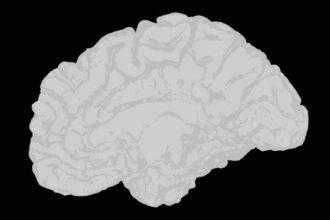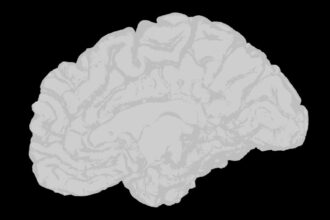Depersonalization and derealization are complex psychological phenomena that can leave you feeling disconnected from yourself and the world around you. These experiences can be unsettling, often leading to confusion and distress. You may find yourself questioning your own identity or feeling as though you are observing your life from a distance, as if you are a mere spectator rather than an active participant.
Understanding these conditions is crucial, as they can significantly impact your mental health and overall well-being. The terms “depersonalization” and “derealization” are often used interchangeably, but they refer to distinct experiences. Depersonalization involves a sense of detachment from your own thoughts, feelings, or body, while derealization pertains to a feeling of unreality regarding your surroundings.
Both can occur independently or together, creating a disorienting experience that can be difficult to articulate. As you delve deeper into these phenomena, it becomes essential to recognize their symptoms, causes, and potential treatments to navigate the challenges they present.
Key Takeaways
- Depersonalization and derealisation are dissociative experiences that can make individuals feel detached from themselves and their surroundings.
- Symptoms of depersonalization include feeling like an outside observer of one’s thoughts and actions, while derealisation involves feeling like the world is unreal or distorted.
- Causes and triggers of depersonalization and derealisation can include trauma, stress, anxiety, and substance abuse.
- Diagnosis of depersonalization and derealisation involves ruling out other medical conditions, and treatment options may include therapy and medication.
- Coping strategies for depersonalization and derealisation can include mindfulness, grounding techniques, and seeking support from mental health professionals.
Symptoms and Experiences of Depersonalization
When you experience depersonalization, you may feel as though you are watching yourself from outside your body. This sensation can be accompanied by a sense of emotional numbness or a lack of control over your actions. You might find it challenging to connect with your emotions or feel as if your thoughts are not truly your own.
In addition to the emotional aspects, physical sensations can also accompany depersonalization. You may notice changes in your perception of time, feeling as though moments are stretching or compressing in ways that defy logic.
Your body may feel foreign or unrecognizable, leading to a profound sense of unease. These experiences can be frightening and disorienting, making it difficult for you to engage fully with the world around you.
Symptoms and Experiences of Derealisation

Derealization, on the other hand, manifests as a distortion in your perception of reality. You might feel as though the world around you is dreamlike or surreal, as if you are living in a movie rather than experiencing life firsthand. Familiar places may seem strange or unrecognizable, and everyday objects can take on an otherworldly quality.
This altered perception can create a sense of detachment from your environment, leaving you feeling vulnerable and anxious. The symptoms of derealization can vary widely from person to person. Some individuals report a heightened sensitivity to sensory stimuli, while others may experience a dulling of their senses.
You might find that sounds are muffled or that colors appear less vibrant than usual. This altered state can lead to confusion and fear, as you grapple with the unsettling realization that your perception of reality is not what it once was.
Causes and Triggers of Depersonalization and Derealisation
| Cause/Trigger | Description |
|---|---|
| Trauma | Physical, emotional, or psychological trauma can trigger depersonalization and derealization. |
| Stress | High levels of stress or anxiety can lead to episodes of depersonalization and derealization. |
| Substance abuse | Alcohol, drugs, or medication abuse can be a cause or trigger of these dissociative symptoms. |
| Psychological disorders | Conditions such as anxiety disorders, depression, or PTSD can be associated with depersonalization and derealization. |
| Neurological conditions | Some neurological conditions, such as epilepsy or migraines, can be linked to these symptoms. |
Understanding the causes and triggers of depersonalization and derealization is essential for managing these experiences effectively. Often, these phenomena arise in response to extreme stress or trauma. You may find that significant life events, such as the loss of a loved one, a traumatic accident, or prolonged exposure to stressful situations, can trigger episodes of depersonalization or derealization.
Your mind may resort to these coping mechanisms as a way to protect itself from overwhelming emotions. Additionally, certain mental health conditions can predispose you to experiencing depersonalization and derealization. Anxiety disorders, depression, and post-traumatic stress disorder (PTSD) are commonly associated with these phenomena.
Substance use can also play a role; for instance, the use of hallucinogenic drugs or excessive alcohol consumption may lead to feelings of detachment from reality. Recognizing these triggers is vital for developing strategies to manage your experiences effectively.
Diagnosis and Treatment Options for Depersonalization and Derealisation
If you suspect that you are experiencing depersonalization or derealization, seeking a professional diagnosis is an important step toward understanding your condition. Mental health professionals typically conduct thorough assessments that include interviews about your symptoms, medical history, and any potential underlying conditions. This comprehensive approach helps ensure that any co-occurring disorders are identified and addressed.
Treatment options for depersonalization and derealization vary depending on the severity of your symptoms and their underlying causes. Psychotherapy is often the first line of treatment, with cognitive-behavioral therapy (CBT) being particularly effective in helping individuals reframe their thoughts and develop coping strategies. In some cases, medication may be prescribed to address underlying anxiety or depression that contributes to these experiences.
It’s essential to work closely with a mental health professional to determine the best course of action tailored to your unique needs.
Impact on Daily Life and Relationships

The impact of depersonalization and derealization on your daily life can be profound. You may find it challenging to engage in routine activities or maintain focus at work or school due to the disorienting nature of these experiences. Social interactions can become particularly difficult; feelings of detachment may lead you to withdraw from friends and family, creating a sense of isolation that exacerbates your symptoms.
Relationships can suffer as well when you struggle with depersonalization and derealization. Loved ones may not understand what you are going through, leading to frustration on both sides. You might feel misunderstood or alienated, which can strain connections with those who care about you.
Open communication about your experiences is crucial in fostering understanding and support within your relationships.
Coping Strategies for Depersonalization and Derealisation
Developing effective coping strategies is essential for managing the symptoms of depersonalization and derealization. Mindfulness practices can be particularly beneficial; engaging in mindfulness meditation or grounding exercises can help anchor you in the present moment. Focusing on your breath or paying attention to physical sensations can create a sense of connection with your body and surroundings.
Another helpful strategy is maintaining a journal where you document your thoughts and feelings during episodes of depersonalization or derealization. This practice not only provides an outlet for expression but also allows you to track patterns in your experiences over time. Identifying triggers through journaling can empower you to take proactive steps toward managing your symptoms more effectively.
Seeking Help and Support for Depersonalization and Derealisation
If you find yourself struggling with depersonalization or derealization, seeking help is a vital step toward recovery. Mental health professionals can provide guidance tailored to your specific needs, helping you navigate the complexities of these experiences. Support groups may also offer valuable opportunities for connection with others who understand what you’re going through.
In addition to professional support, reaching out to friends and family can create a network of understanding around you. Sharing your experiences with trusted individuals can alleviate feelings of isolation and foster empathy in your relationships. Remember that seeking help is not a sign of weakness; rather, it is an essential step toward reclaiming control over your life and well-being.
In conclusion, depersonalization and derealization are intricate psychological experiences that can significantly impact your life. By understanding their symptoms, causes, and treatment options, you empower yourself to navigate these challenges more effectively.
Understanding the nuances between depersonalization and derealization is crucial for both mental health professionals and those experiencing these symptoms. Depersonalization refers to a feeling of detachment from one’s own body or self, while derealization involves a sense of unreality or detachment from the external world. Both conditions can be distressing and are often associated with anxiety and trauma-related disorders. For a deeper exploration of these concepts and their implications, you can refer to a related article on the topic by visiting Unplugged Psych. This resource provides valuable insights into the psychological mechanisms behind these experiences and offers guidance on how to manage them effectively.
LEARN MORE About Depersonalization & Derealization
FAQs
What is depersonalization?
Depersonalization is a mental health condition characterized by feeling detached from one’s own thoughts, feelings, and body. It can make individuals feel like they are observing themselves from outside their body.
What is derealization?
Derealization is a mental health condition characterized by feeling detached from one’s surroundings. It can make individuals feel like the world around them is unreal or distorted.
What are the differences between depersonalization and derealization?
Depersonalization involves feeling detached from oneself, while derealization involves feeling detached from the external world. Individuals with depersonalization may feel like they are watching themselves from outside their body, while individuals with derealization may feel like the world around them is distorted or unreal.
What are the potential causes of depersonalization and derealization?
Depersonalization and derealization can be caused by various factors, including trauma, stress, anxiety, depression, and substance abuse. They can also be symptoms of other mental health conditions such as dissociative disorders.
How are depersonalization and derealization treated?
Treatment for depersonalization and derealization may include therapy, medication, and stress-reducing techniques. Cognitive-behavioral therapy (CBT) and mindfulness-based approaches have been found to be helpful in managing these symptoms.
Can depersonalization and derealization co-occur?
Yes, it is possible for individuals to experience both depersonalization and derealization simultaneously. This can be particularly distressing and may require specialized treatment from mental health professionals.




